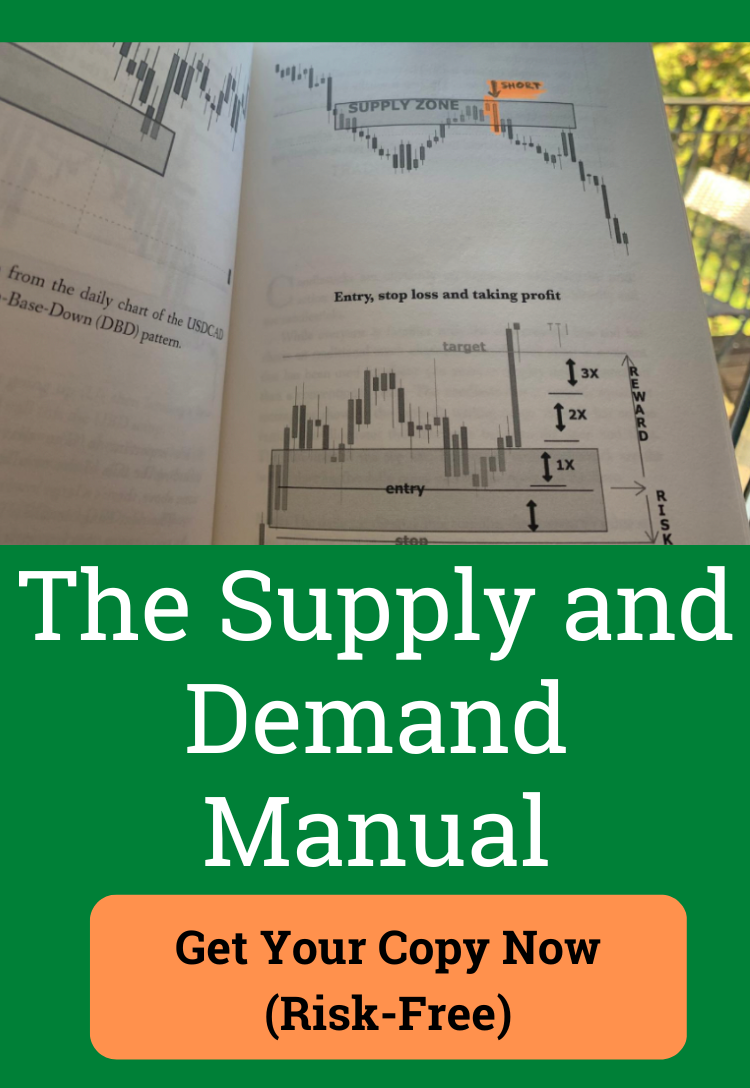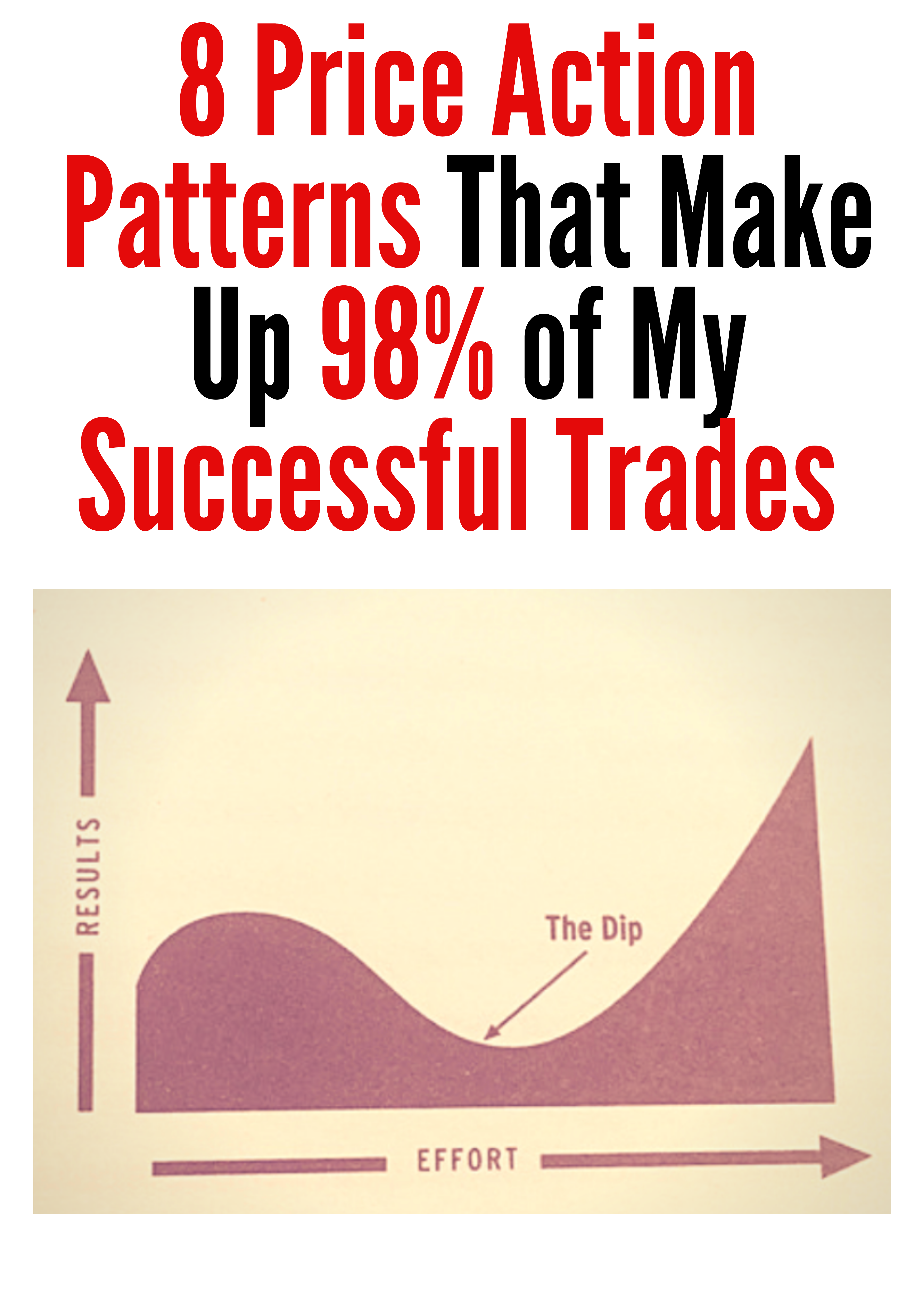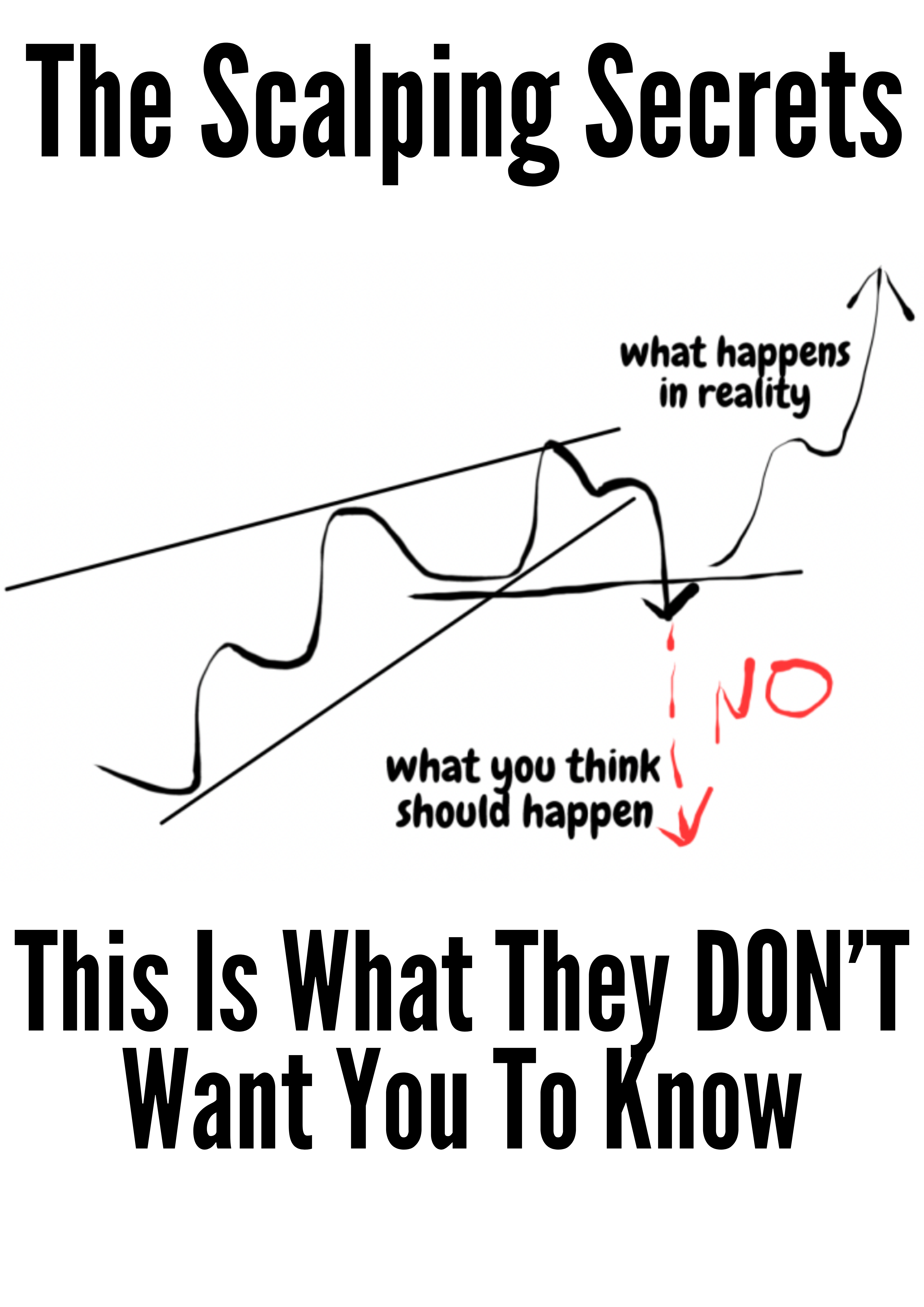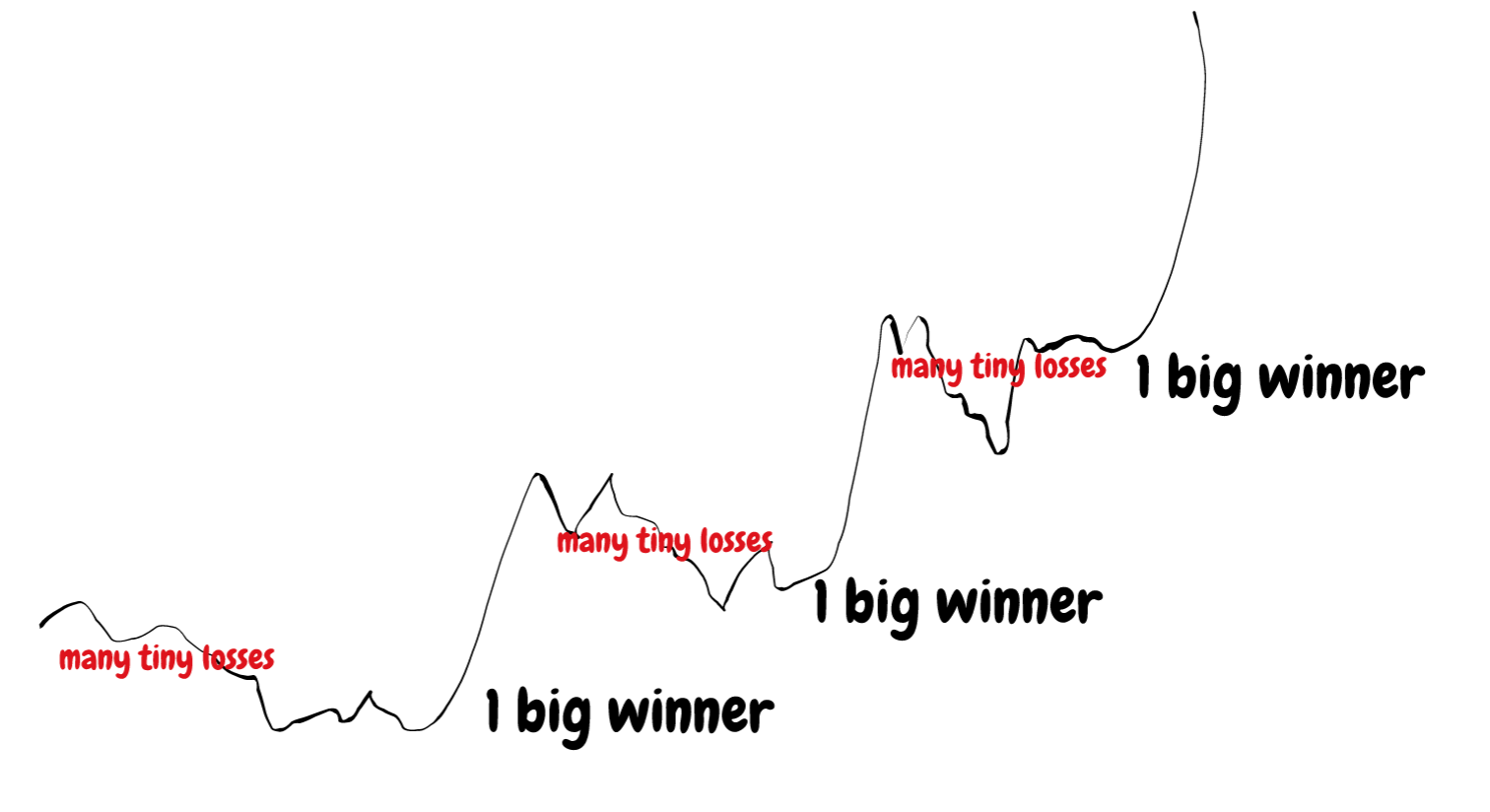The Perfect Trade- Am I Right or Wrong
The Perfect Trade
Is there such a thing as a perfect trade?
Two traders will answer this question differently.
There are places in time on the chart where all of the stars are aligning and you have great conditions for placing a trade.
There is no way how you can predict in advance such moments.
Everyone trying to tell you where the market will go is probably just as good a trader as an amateur trader.
***DOWNLOAD THE LITTLE BOOK OF DAX PDF
Contents in this article
If they are giving you a few different scenarios and explaining what you could expect to happen if price reaches point A and forms a specific pattern, then you should probably listen.

Here are a few important DON’Ts to consider before proceeding with this article:
- Blindly follow correlations (if they have existed for years or decades it does not mean they are still valid)
- Assumptions do work (do not make assumptions about anything- always doubt every scenario)
- Trust trading predictions (if trading predictions worked, you would have seen a lot more rich people in this field)
- Hardly believe anything on popular TV, newspapers or media in general
How Do I Spot My Perfect Trade?
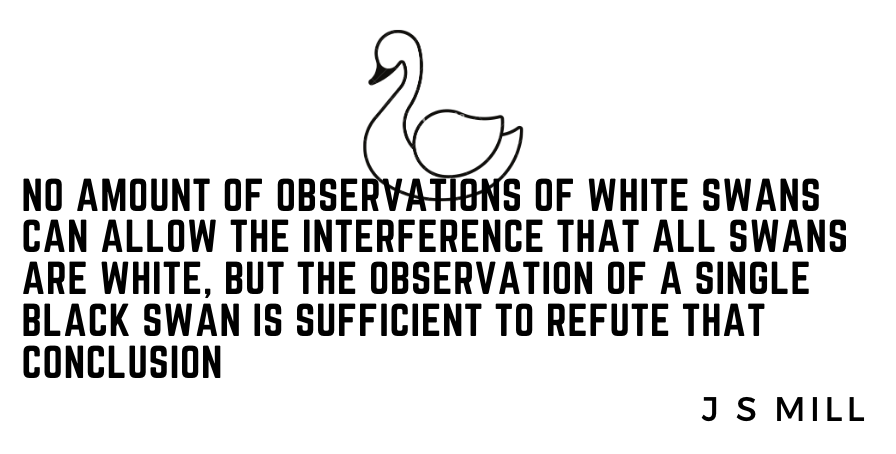
A perfect trade could mean different things to different traders.
A lot of you were probably expecting of me to give you a “magical formulae” for achieving success.
A holy grail in trading does not exist. If someone is trying to sell you a dream of “rags to riches” style, run away!
In trading over 90% of traders of fail. This statistic tells you how easy it is to make it in trading.
It also reminds me of the following text from Taleb’s book “Fooled by Randomness”.

People are prone to jump to quick conclusions.
They are also happy to have someone promising them quick trading success.
There is no such thing as quick trading success.
Quick gains evaporate as quickly as they came.
So, how do I spot my perfect trade?
It happens after I am in a trade already.
After I can see that the market is moving the way I expected it to move when I entered into this trade.
It is almost like testing the market with small trades until you get what you want.
Then you need to make sure that the “truck is loaded up”, so that you make the most of it.
It is an almost zen-like moment in which you go through a stage of experimenting to a stage of making a lot of money.
The perfect trade occurs when it has already happened.
There is no way you can know recognise a perfect trade before you have closed that trade.
All you can do is utilise all of your trading skills and follow your money management skills.
Now, think about the following line:

Do Trading Instruments Matter?
Different markets “behave” in different ways.
Non-professional traders develop a “feel” for the market.
In general, a good approach is to trade a few different markets.
This is especially true for day trading.
Here are a few important points:
- Professional traders and money makers do concentrate on certain markets and develop their algos accordingly.
- The more markets that are incorporated, the harder it is to manage the risk.
- Why would you want to increase the number of markets traded if you are already making money in one or a few different ones?
Let’s remind ourselves the 4 dont’s in trading again before we proceed:
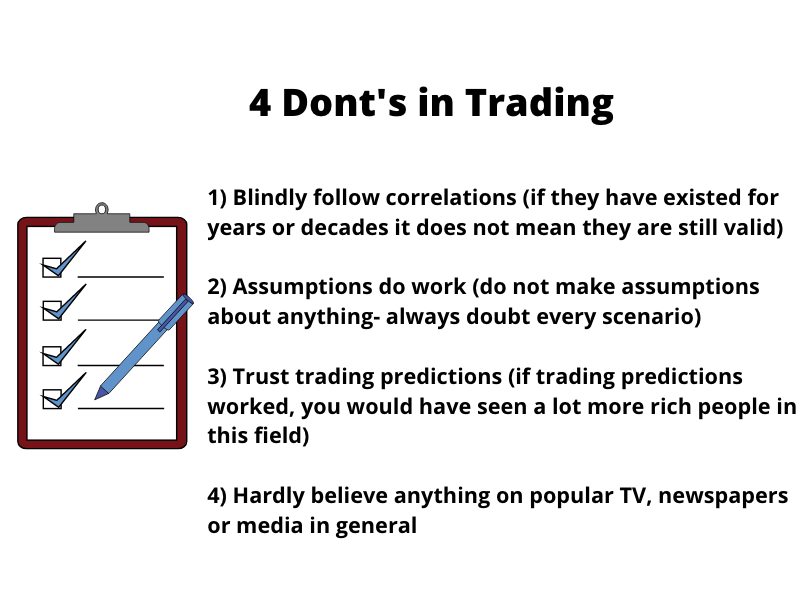
Do Timeframes Matter?
Longer timeframes have less noise than shorter timeframes…
This is the generally accepted assumption.
Can you believe an assumption?
I would not in most cases.
You will need to vigorously test everything and see what works for you.
There is no such thing as a perfect trade.
It is all about the levels and the amount of confidence you have at a certain point in time.
And if the market is kind enough to provide the necessary volatility, then you can make money… and a lot of it if you know how to properly manage market risks.
The rest is words…
Does that mean that smaller timeframes do work, as well?
I used to be prone to answer this question negatively before.
More and more I am reaching the conclusion that timeframes are somehow irrelevant.
They are helpful for the beginner trader, but the more I am trading, the more I do understand that levels are what does matter.
Knowing how to interpret how price behaves around certain levels that others are watching is crucial.
If you manage to find a chart pattern appearing over and over again and leading to the same outcome would on any timeframe is a great sign for success.

As you can see in the screenshot above, small timeframes are a lot more chaotic and “noisy” than big timeframes.
Does this mean that they don’t offer trading opportunities?
Certainly not.
Catching a Falling Knife
Small timeframes are harder to read, but that is another reason why day trading is so much harder than long-term trading/investing.
There is so much more room for error.
What do you reckon is more dangerous?
Trying to catch a falling knife 1 time a week or 10 times a day?
Only the best of traders can make it.
And even they like to diversify and add a long-term trading strategy to their day trading one.

Don’t forget that the perfect trade can come after a series of random events.
Accepting Losses in Trading
Usually new traders would prefer the number of losses to be low.
On the other side, they would prefer the number of gains to be high, rather than optimising the total performance.
I do not care how many losses I will bear as long as they are small.
On the other side, I prefer to make as much money as possible when I am right
The perfect trade for me is one in which I know I am right and am trying to make as much money as possible, while I am right.
In a “P/L chart”, I would like to see my performance to look like that:

Throughout the areas where you have “many tiny losses” I do also include the small wins.
Small profits do not matter for me.
What counts is only the big winners.
Everything else is part of the noise.
There is no such thing as a perfect trade- what matters is your ability to take losses and know how to gain large when you are right.
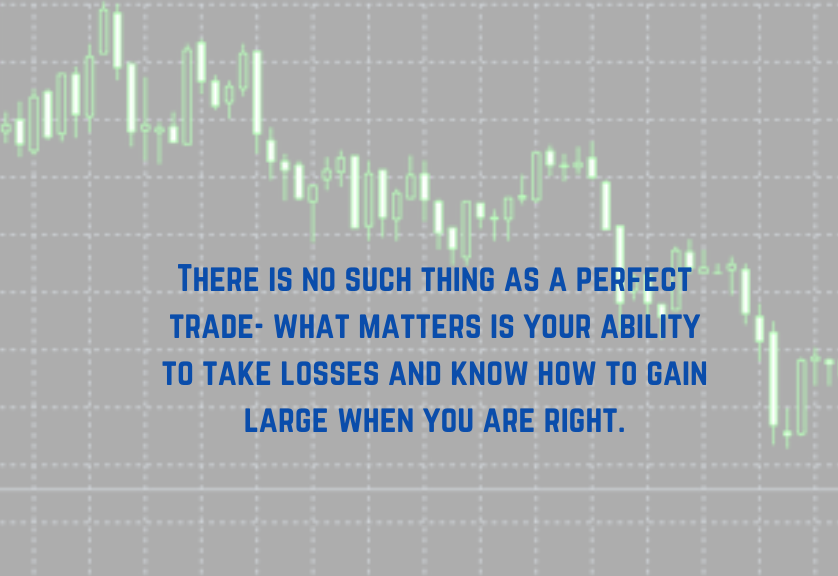
The Levels I am Watching
There are a few important levels and zones that I am watching in trading.
I have shared with my students in details of what exactly I am looking for.
These levels are simple, but they have certain characteristics that need to be met before a trade could be taken.
Without going into much details, these levels are:
C) Bigger Timeframes confluence with smaller timeframes
The Role of Luck in Finding The Best Trade
When does a perfect trade comes around and what roles does luck play?
Some call it luck.
Others call it gut feeling.
Third like to think that there is no such thing as bad or good luck and it all comes down to the skill of the trader.
I tend to see the “third” group of traders as newbie trader or traders who have not taken enough risks to be able to see the reality clearly.
Important: The role of chance always plays a role. It comes down to us traders to make the most (or least of) of it.
I have seen more traders that are overconfident about their trading.
I have talked with “traders” who believe that they could make 1 million dollars from a 1,000USD trading account in one year.
There might certainly be traders who are able to achieve that feat somewhere on this planet.
Unfortunately, I still have not met them.
This story makes me think about the fact that 90% of traders lose money.
It also reminds me that probably 9 out of 10 traders are overconfident about their trading.
Remember: Overconfidence is the first sign to failure.
I would like to see more humble traders that rarely speak about trading.
Remember that:
Nobody accepts randomness in his own success, only his failure!
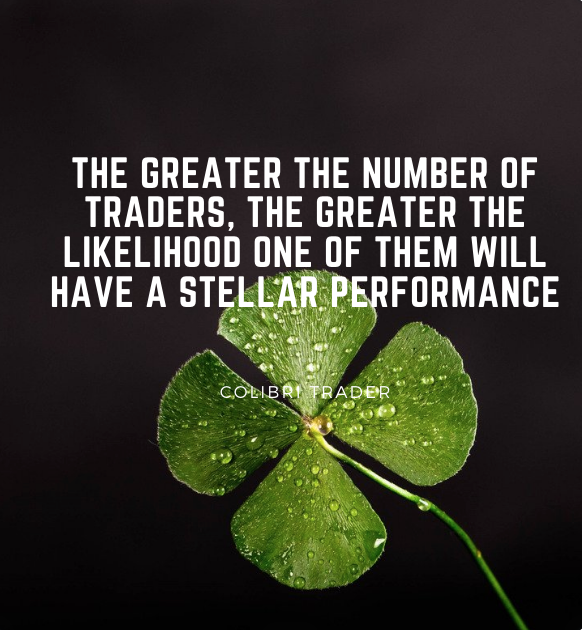
Targets and Great Trades
One of the best ways to spot a perfect trade is to have a target before you take the trade.
I have seen too many traders letting a lot of money on the table to only see the price reversing and having their SL hit.
One thing I have learnt from losing is: ALWAYS TAKE MONEY HOME
Don’t let perfect trades turn into terrible trades.
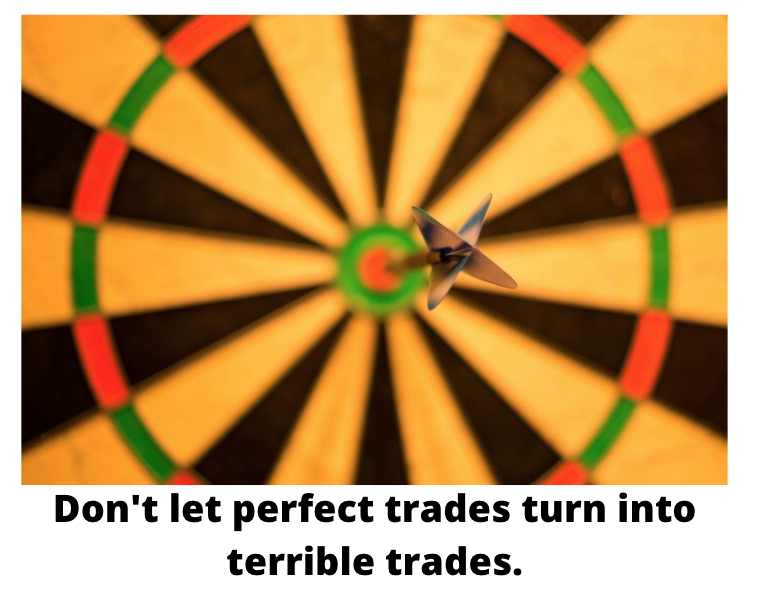
Conclusion
Is there such a thing as a perfect trade?
I would like to think of the following 8 points when it comes to “perfection”:
- Ask yourself the question of why you are taking this trade before taking it
- Find reasons why it is a bad idea of taking this particular trade
- No permanent idea in trading is held to exist- allow counter-ideas to emerge
- Check your risk and always think of worst case scenarios
- Overconfidence is the first sign for failure
- Targets before entering in a trade are as important as stop-losses
- In trading over 90% of traders don’t make, so think twice before taking this last trade
- The perfect trade emerges only after you have taken a trade
I hope this article would help you see the other side of “positive” trading and “rags-to-riches” promises from “trading gurus”.
The perfect trade comes only to the ones that are patient enough to wait for them and do the hard work.
Shortcuts in trading are for losers.
Cutting corners brings the house down.
Think twice before placing your next trade and watch out because it could be the perfect trade!


